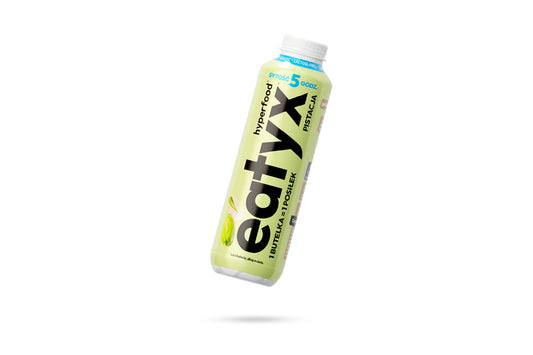The health and function of the musculoskeletal system depend on the condition of joint cartilage, the most important building block of which is this specific protein. Choosing the right support depends on its source, form, and type. Discover the most absorbable collagen for joints to consciously maintain comfortable movement and full activity every day.
Types of collagen – which are important for joint health?
Collagen is the basic structural protein in the human body, responsible for the elasticity and strength of tissues. Many different types of this protein have been identified, but only a few are crucial for the health of the musculoskeletal system. In the context of obtaining the most absorbable collagen for joints, the most important is type II collagen, which constitutes as much as 90% of the dry weight of joint cartilage. It provides cartilage with resistance to compression and ensures its elasticity, which is fundamental for smooth and painless movement. Its presence determines proper cushioning and protection of joint surfaces.
Although type II is dominant in cartilage, other types of collagen are also important for the overall functioning of the musculoskeletal system:
-
Type I collagen is the most common protein in the body and is the building block of skin, bones, tendons and ligaments, among others;
-
Type III collagen, in turn, is found, among others, in blood vessels and tissues formed during healing processes, as well as in the walls of blood vessels.
The synergistic action of these types of collagen provides comprehensive support – strong bones and tendons are essential for joint stabilization, and a functioning circulatory system ensures the delivery of nutrients to all tissues.
Sources of collagen for joints – why is it worth knowing them?
Collagen dietary supplements are derived from various animal sources, which directly impacts the content of specific types of protein. The most common products on the market are those based on beef and marine (fish) raw materials. Fish collagen, obtained from skin and scales, is characterized by a high content of type I collagen, making it a popular choice for improving skin condition.
Bovine collagen, on the other hand, is an excellent choice for those seeking comprehensive support for the musculoskeletal system. It is a rich source of both type I and type III collagen, providing a holistic effect—not only on joints but also on bones, muscles, and blood vessels. It also has a positive effect on the skin. This combination supports the regeneration of various body tissues. Furthermore, bovine collagen has a lower allergenic potential compared to fish collagen, making it a safer choice for those prone to allergies. This makes it a versatile solution for maintaining physical fitness.
The best absorbable collagen for joints – powder, tablets or liquid?
The bioavailability of collagen is determined not so much by its physical form of administration, but by the chemical structure of its molecules. Hydrolyzed collagen is considered the most bioavailable form of collagen for joints. The hydrolysis process involves breaking down long protein chains into much smaller fragments, called collagen peptides. Thanks to their low molecular weight, these peptides are effectively absorbed in the small intestine and then transported via the bloodstream to target tissues, where they can be used as a building block for the synthesis of new collagen fibers or as a stimulant for cell production.
The choice between powder, liquid, or tablets is a matter of individual preference and convenience. It's worth noting, however, that liquid forms, such aseatyx LABS Collagen Premium 16,000 mg collagen shots , are very convenient. The product addresses the needs of today's dynamic lifestyle. This form of supplementation eliminates the need to prepare a powder solution or swallow multiple tablets, offering a precisely measured dose in one handy bottle. This is an ideal solution for active and mobile individuals – the shot can be taken with you to work, the gym, or on the go. The convenience of use makes daily supplementation a simple and quick ritual, not a burdensome chore.
What are the benefits of using collagen for joints?
Regular supplementation with high-quality collagen brings tangible benefits to the musculoskeletal system. Primarily, this protein helps maintain healthy bones, which are the foundation for properly functioning joints. Furthermore, providing collagen peptides internally supports the body's natural regenerative processes, which is crucial for cartilage tissue. Collagen also contributes to the maintenance and growth of muscle mass, and strong muscles play a key role in stabilizing joints and relieving stress during movement, reducing the risk of injury.
Furthermore, collagen influences the elasticity of blood vessels, which supports a healthy cardiovascular system and ensures efficient transport of oxygen and nutrients to all body cells, including chondrocytes, the cells of joint cartilage. Its comprehensive action makes it an important element in maintaining overall body health. Therefore, it's worth choosing the most absorbable collagen for joints – for example, the one from eatyx LABS .
When is it worth taking collagen for joints?
Collagen supplementation is recommended in several cases:
-
First of all, it should be considered by physically active people and athletes whose joints are regularly exposed to significant loads, which accelerates the wear of joint cartilage;
-
The next group is the elderly. With age, the body's natural ability to synthesize collagen declines, which manifests itself in weakened joint structures and the deterioration of skin, hair, and nails. Supplementing this protein can slow down the adverse changes associated with the aging process.
There are certain signs that may indicate decreased collagen levels in the body and deteriorating joint health. These symptoms include morning joint stiffness that subsides after exercise, a characteristic clicking or popping sound during movement, and a longer recovery time after exercise. Supplementation is worth considering as a preventative measure before pain develops. This preventative approach allows you to maintain full function for longer.
How to recognize high-quality collagen for joints?
To choose the best-absorbed collagen for joints, you should consider several key factors. The first is the type of collagen – it's worth choosing comprehensive preparations containing types I and III. The second aspect is the form – hydrolyzate ensures the best absorption. The dose of the active ingredient in a daily dose is also crucial. It's worth choosing products with a clearly defined collagen peptide content. Eatyx offers a 16,000 mg collagen shot, as well as hydrolyzed bovine collagen in liquid form with a measuring cup for self-dosing:Eatyx LABS Collagen Premium 200,000 mg .
The effectiveness of supplementation can be increased by choosing products enriched with supporting substances. Vitamin C is absolutely crucial, as it supports the body's proper collagen production to ensure the proper functioning of cartilage, bones, and skin. High-quality products often also contain other ingredients with proven benefits, such as B vitamins, which support energy metabolism. The synergistic action of these ingredients produces better results.
How to keep your joints healthy for longer?
Collagen supplementation is an important aspect of joint care, but it should be supported by other activities. A healthy lifestyle is key. Regular, moderate physical activity, such as swimming, cycling, or Nordic walking, strengthens the muscles that stabilize joints without overloading them. It's important to avoid overuse, maintain a healthy body weight, and allow the body adequate time to recover after exercise. Exercise stimulates the production of synovial fluid, which nourishes cartilage.
Joint health is also closely linked to your daily diet. It should be rich in anti-inflammatory foods, such as vegetables, fruit, healthy fats (e.g., from fish, avocado, nuts), and whole grains. Limiting simple sugars and highly processed foods helps reduce inflammation in the body. Proper hydration is crucial. Joint cartilage and synovial fluid are largely composed of water, so drinking adequate amounts is essential for maintaining proper flexibility of the musculoskeletal system.



